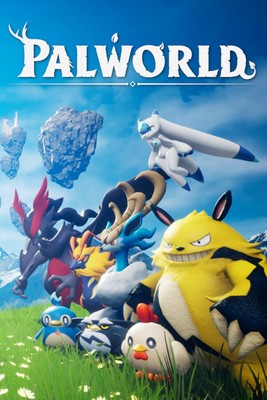News
Palworld Developer Pocketpair Reveals 3 Patents Involved in Nintendo, The Pokémon Company's Infringement Lawsuit
posted on by Alex Mateo

The first target patent, Patent No. 7545191, relates to aiming an object towards a character. In other words, it refers to aiming a Pokéball at a Pokémon to initiate combat. The second patent, Patent No. 7493117, involves catching a character, specifically creature, in a field setting. The third relevant patent is Patent No. 7528390, which centers on riding the creatures.
Pocketpair stated that it will continue to assert its position through future legal proceedings.
Nintendo and The Pokémon Company filed a patent infringement lawsuit against Pocketpair at the Tokyo District Court on September 18. The suit claims that the game infringes on Nintendo and The Pokémon Company's patent rights, and seeks an injunction against infringement as well as compensation for damages. Pocketpair responded by stating it is "unaware of the specific patents [it is] accused of infringing upon, and [it has] not been notified of such details." The company stated it will begin legal proceedings and investigations into the claims.
Players and critics initially noted the similarity of the designs of many of the game's "Pal" creatures to the Pokémon franchise's titular Pokémon. The Pokémon Company released a statement shortly after Palworld's release that it was investigating a possible copyright infringement by an unnamed game company.
The game had launched on PS5 in 68 countries and territories on September 25, but Pocketpair later stated the game would not launch for PS5 in Japan on that same day. The game was eventually released on Friday in Japan for PS5 on September 27.
Pocketpair debuted its Palworld multiplayer survival game on January 19 as a Steam Early Access game. The game reached 25 million users within a month of its release.
Sony Music Entertainment Japan Inc. and its subsidiary Aniplex, along with Pocketpair, established a new joint venture named Palworld Entertainment in July.
South Korean game developer Krafton signed a licensing agreement with Pocketpair for the IP (intellectual property) to expand the game's IP to the mobile platform.
Update: A particular patent may cover a specific implementation of a method and may not necessarily cover a broad range of similar methods. Google Patents posted in the links above the full text of the specific methods for which Nintendo received the patents.
Source: Pocketpair
this article has been modified since it was originally posted; see change history